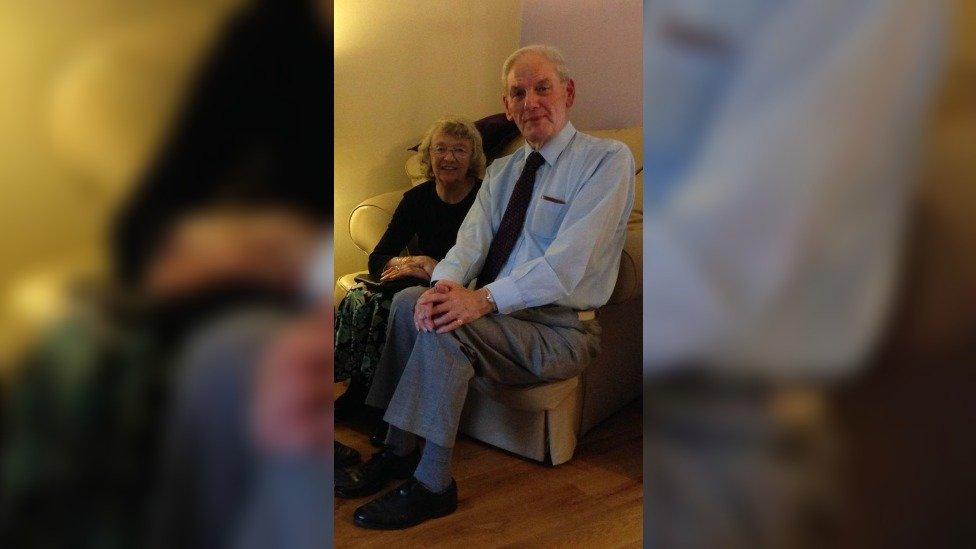Penygraig Co-op killing: Zara Radcliffe health signs missed, report finds
- Published
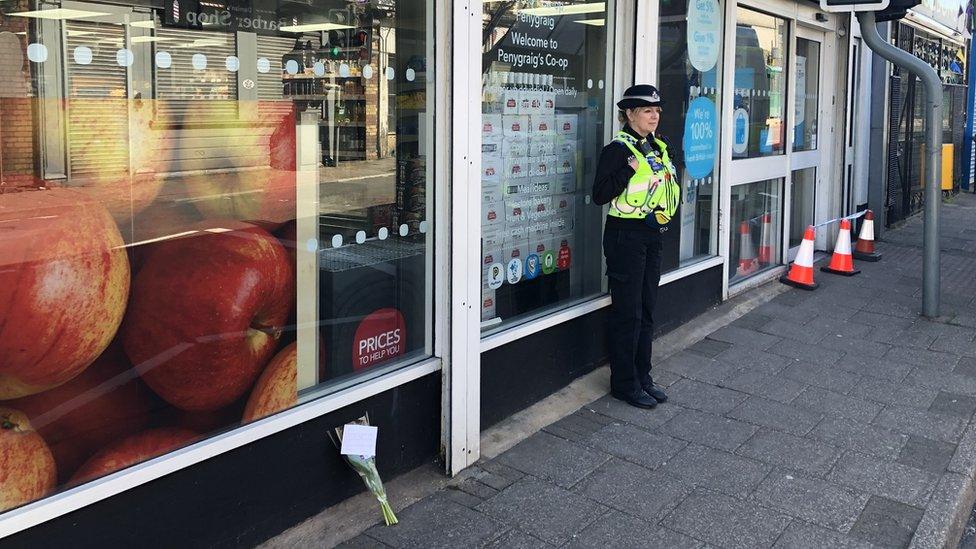
John Rees died after being attacked at the Co-op in Penygraig, Rhondda Cynon Taf
Warning signs were missed by health professionals before a woman with schizophrenia beat a man to death at a supermarket, a review has found.
Zara Radcliffe, 30, set upon John Rees, 88, at the Co-op in Penygraig, Rhondda Cynon Taf, on 5 May 2020.
He died after trying to stop her attacking himself and four other shoppers with a kitchen knife.
Cwm Taf Morgannwg University Health Board has apologised for "any instances in which her care fell short".
Radcliffe pleaded not guilty to murder but admitted manslaughter on the basis of diminished responsibility.
In October 2020 she appeared for sentencing at Merthyr Tydfil Crown Court - via video link from Rampton Hospital, a secure unit in Nottinghamshire - and was detained under a hospital order.
The order was not time-limited in order to protect the public, the court was told.
An independent review commissioned by Cwm Taf Morgannwg Safeguarding Board made seven recommendations to the health board following the attack.
These include:
Demonstrate that people with mental health problems are encouraged to tell their stories in their own words
Ensure that such patients are contacted when they miss appointments
Show how it works with patients and families who often complain, and how it supports staff upset by complainants
Give evidence of how it involves patients and families in crisis planning
Health chiefs and local councils and police should co-ordinate their responses after serious incidents because news and social media reporting "wields great influence" and is of "keen interest" to those affected
Its report, published on Friday, states that "warning signs" of Radcliffe's "rapid deterioration" were apparent before the Covid pandemic.
But these were "not recognised or poorly processed", it added.
It said the decision-making capability of Radcliffe, from Porth, Rhondda Cynon Taf, was not questioned, and there was "no negotiated crisis plan" before she was discharged from hospital.
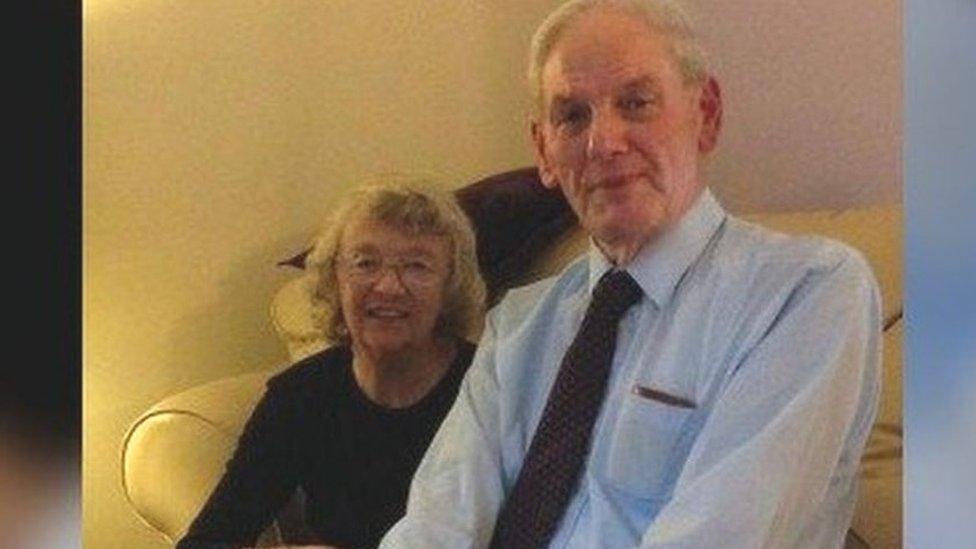
John Rees was stabbed by Zara Radcliffe while his wife Eunice was waiting for him in a car outside the shop
Mr Rees, a grandfather from Trealaw was posthumously awarded a Queen's gallantry medal.
Two women who were also attacked by Radcliffe as they tried to prevent the onslaught, Lisa Way, 53, and Ayette Bounouri also received the award.
Nurse Gaynor Saurin, 65, and Andrew Price, 58, were also victims of the attack by Radcliffe as they shopped.
Speaking after her sentencing, her father Wayne Radcliffe said he had called NHS staff and social services begging for his daughter to be readmitted on the morning of the attack, but nobody came to help.
However, the review said that Radcliffe's parents raised concerns about aspects of their daughter's care, but found challenges they made "estranged them from mental health and other professionals".
Reliance on drugs and alcohol
Radcliffe's contact with mental health professionals began in 2016, and she was known to a range of services.
But her parents were "frustrated" that these services did not appear to engage with their daughter's "distressing life events", including childhood bullying, the end of her relationship with her fiancé, and an increasing reliance on drugs and alcohol.
The report added that Radcliffe was separated from family and friends by subsequent relationships with "men who were aggressive". Between 2014 and 2015, she was known to be a "high risk victim" of domestic violence.
There was also "uncertainty" surrounding Radcliffe's mental health status, with a lack of agreement between different health professionals, the report said.
What happened in the attack?
CCTV footage showed Radcliffe cross the road towards the supermarket before attacking Mr Price in the street as he left the shop.
She jumped on his back and struck him to the head with a kitchen knife she had brought with her from home.
Mr Price managed to escape and ran away from her.
The video evidence showed her enter the shop and continue the attack on Ms Saurin by repeatedly stabbing her head.
Mr Rees attempted to intervene to stop her but was pushed to the floor and became the focus of the attack.
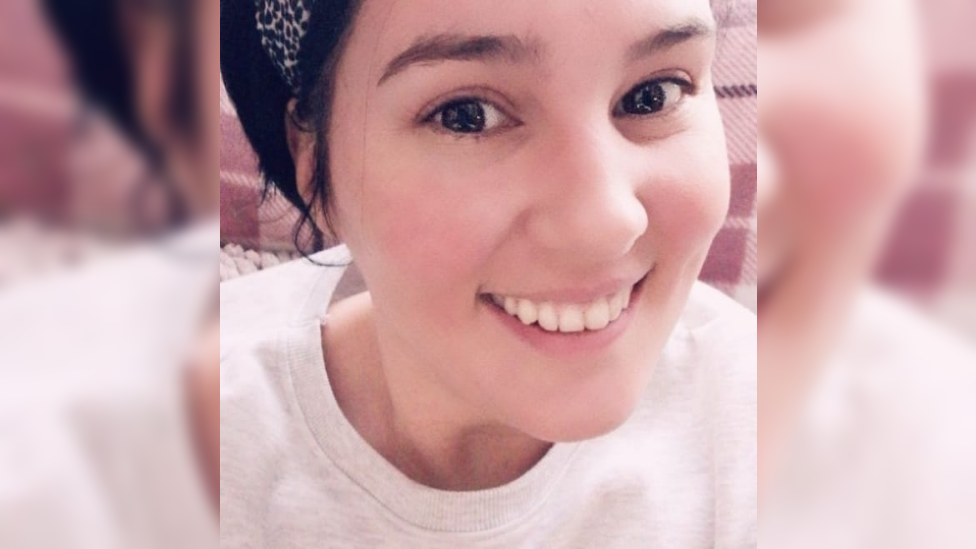
Zara Radcliffe said voices in her head drove her to the spree of attacks which led to the death of a man
Ms Way asked Radcliffe to stop what she was doing and talk, and was stabbed in the neck before escaping to a nearby takeaway.
A shop worker tried to drag Mr Rees away down one of the supermarket aisles but was stopped by Radcliffe who beat him with wine bottles and a fire extinguisher until he died from head injuries.
When police arrived at the store Radcliffe said: "It had to be done - that's it".
She told police she had heard voices telling her she had to kill someone to avoid being harmed herself.
'Care fell short of high standards'
She said: "I can't tell you about the voices in my head, they're so real".
Responding to the report, health board chief executive Paul Mears called it "a tragic case that has impacted upon the lives of many people".
He said: "We apologise to Miss Radcliffe and her family for any instances in which her care fell short of the high standards we set ourselves.
"We requested this external review to ensure all opportunities for learning and improvement could be identified."
Mr Mears added that steps have already been taken in response to the recommendations, including a new patient notes system, improvements in discharge arrangements, and better collaborations with families and social services.
Rhondda Cynon Taf council also apologised for "the occasions where improvements in our care and support for Zara have been identified" and promised to act on the recommendations.
Related topics
- Published22 October 2020
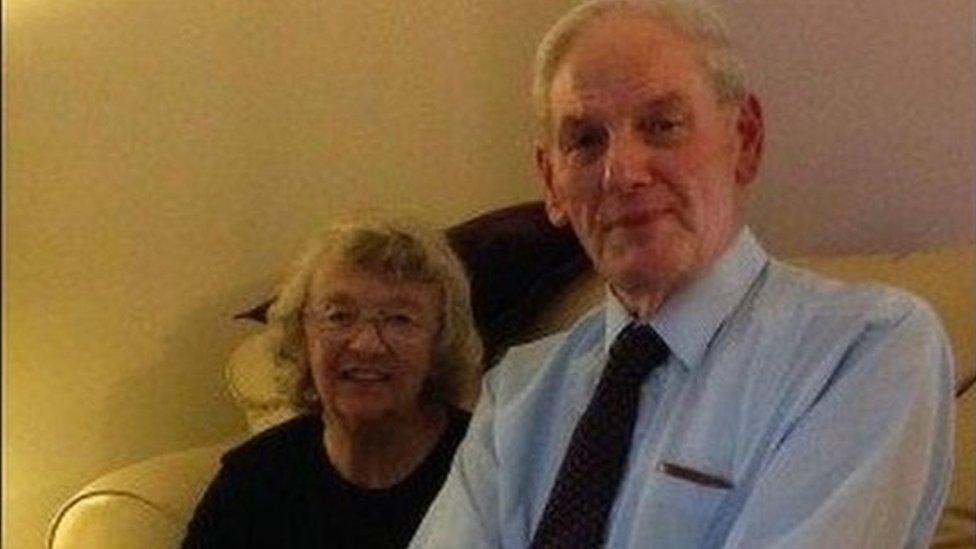
- Published19 October 2020
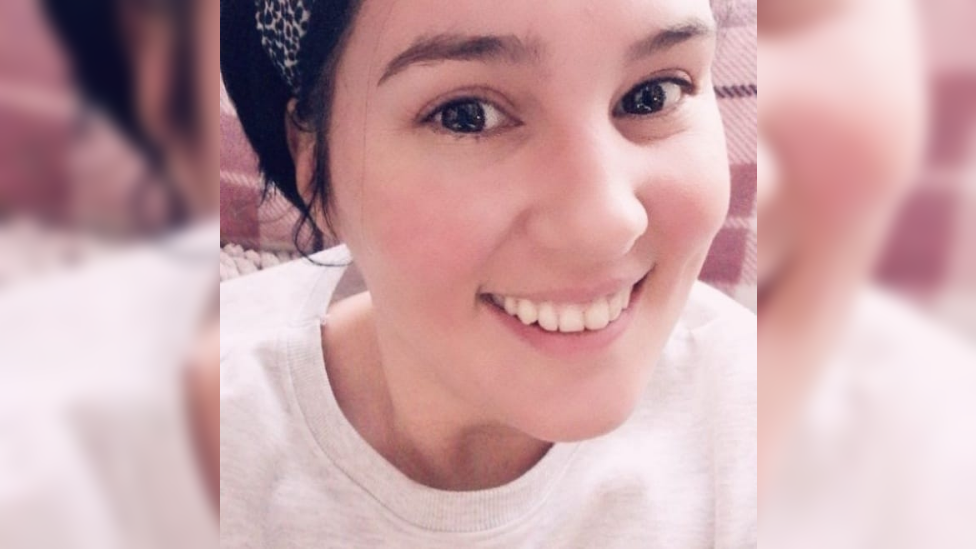
- Published14 May 2020
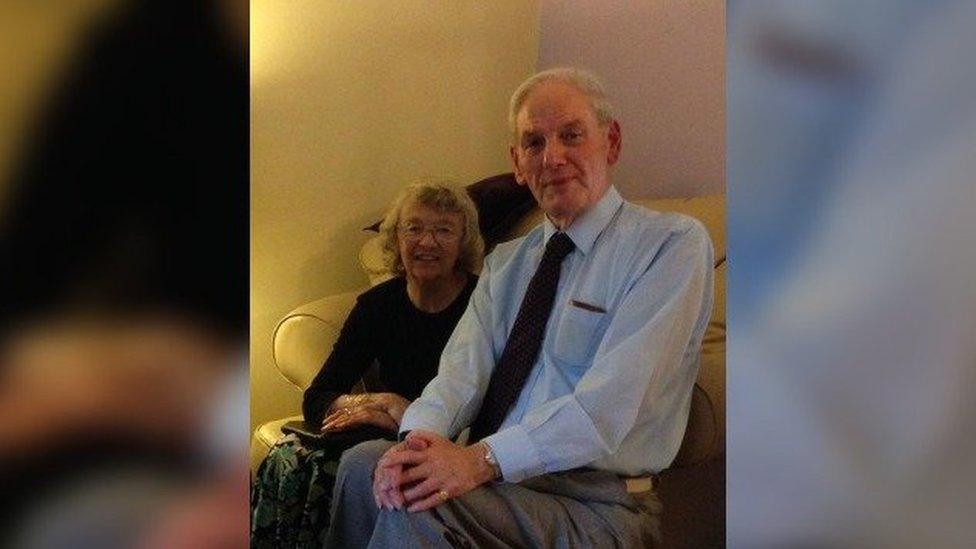
- Published11 May 2020
